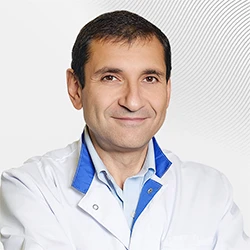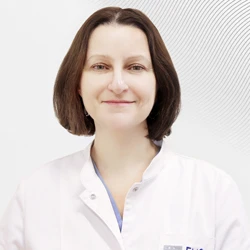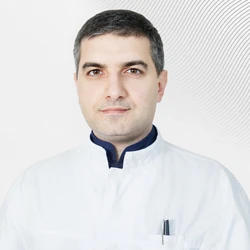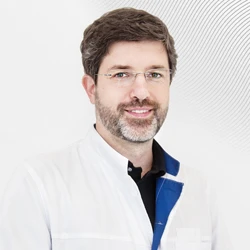In recent years, inflammatory bowel diseases have been increasingly detected not only in adults, but also in children. Ulcerative colitis is a severe inflammatory disease affecting the large intestine, as a result of which edema develops in the intestine, the mucous membrane collapses with the formation of erosions and ulcers. The disease is indicated by the appearance of diarrhea, blood and mucus in the stool, as well as pain. The disease can be caused by a hereditary predisposition, as well as intestinal infections and environmental factors.
It should be noted that the advent of biological anti-cytokine drugs has made a real revolution in the treatment of severe intestinal diseases such as ulcerative colitis and Crohn's disease. New treatments have given patients a chance to lead a fulfilling life and avoid, or seriously delay, surgery.
The Expert Council of the Society for the Study of Inflammatory Bowel Diseases, held under the auspices of the Russian Gastroenterological Association, recently took place. The meeting was attended by leading international experts. The event was timed to coincide with the registration of new treatment regimens for ulcerative colitis. So far, only one drug has been used in the treatment of this disease in the Russian Federation. The Expert Council pointed to the experience of using anti-cytokine therapy in the treatment of patients with inflammatory bowel diseases, noted the increase in its importance at the present stage, the importance of developing this area and the emergence of new drugs with better properties.
For the first time in Russia, complete clinical trial data is presented. It should also be noted that the significant clinical effect was already 2 weeks after the start of therapy. The healing efficiency of intestinal lesions is about 65-72% during 6 weeks of treatment. The new treatment regimens are included in clinical guidelines and standards for use in Russian gastroenterological clinical practice. This allows for effective treatment of ulcerative colitis, including clinical remission without steroids, healing of the colon mucosa, and improved quality of life for patients.
Was this information helpful?
Questions and answers
Both knees
I would like to get MRT and diagnosis for my knees. Left has old trauma and right is hurting now permanently. An English or German speaking doctor would be an advantage. KR Florian
Dear Florian. Be sure you'll get all the answers for your questions. We have MRI and English-speaking staff including knee surgery specialists. Our assistants will contact for further instructions. Kind regards.
Laser surgery for removal of varicose veins
Does you clinic offer laser surgery for removal (or correction) of varicose veins on the legs? I would like to learn about both the aesthetic and medical side of the issue.
Our clinic performs the most common and advanced methods of varicose veins’ treatment. This includes classic phlebectomy, injection sclerotherapy, and foam sclerotherapy (the most common method of treatment in Europe). The method of treatment depends on certain medical conditions. If the disease manifests itself as
small spider veins, the laser correction could be performed by a surgeon-phlebologist or a dermatologist. But each case is always individual. You need to make an appointment for a consultation to discuss all the issues in more detail.
...more
Cancer of the thoracic spine
I have cancer of the thoracic spine. According to the MRI, I have wedge-shaped vertebrae, and small fractures in some places, with the absence of normal bone. Is it possible to undergo a vertebroplasty if the lumbar region is also affected? Will the lumbar vertebrae be able to support the thoracic vertebrae after
this procedure?
...more
It is necessary to analyze the MRI scans in this case. Metastatic vertebral bodies are treated with radiation and chemotherapy according to our principles. Vertebroplasty is possible, but it is difficult to say anything specific without seeing the scans.
Hernia-related pain
Hello, I had hernia-related pain about one month ago. With abrupt leg and foot movements, I experience pain in the cervical segment of the spine, radiating into my arm. MRI test result: degenerative-dystrophic changes of the cervical segment, spondylosis, osteophytosis of C5-C6 segment, posterior hernia of C4-C5
segment with a tendency to sequestration. Could the hernia growth be stopped? What do I do?
...more If the MRI data shows a disk protrusion (small hernia) which does not cause dural sac compression and you have no clinical manifestations of the disease, you need to undergo physical therapy and therapeutic physical training aimed at strengthening the muscles of the cervical segment of the spine. In order to make the
decision, you must make an appointment and show the MRI results to a neurologist or neurosurgeon, who will give you recommendations for further action. You can get all necessary assistance at our center.
...more
Tumor in the breast
I’ve had a tumor in the lower part of my right breast and a metastasis in the left lymph node removed in 2011. I then had a recurrence in the upper quadrant of the right breast. But the doctors didn’t immediately react to this, even though I told them that I was experiencing some discomfort. After this I had biopsies
under ultrasound guidance at several medical centers, but I keep getting a completely different diagnosis everywhere I go. I still haven’t received any treatment. Test results are good. The metastasis is not growing but just sitting there. They’ve suggested a mastectomy. What’s the point? I don’t want to undergo chemotherapy. I’m on a raw food diet. I don't know what to do. I wish at least one of the diagnoses was confirmed. I want to be sure that I’m getting the right treatment. Because it’s the doctors that have brought me to this situation, even though I’ve had regular screenings for the past 25 years.
...more Before answering any questions regarding treatment, it is necessary to carry out a successful biopsy under ultrasound or X-ray guidance, to obtain multiple tissue samples (not cells) with subsequent histological and immunohistochemical analysis. Only then can we discuss a specific treatment plan! In any case, EMC
staff are always ready to provide advice and carry out the necessary diagnostic tests.
Best regards, Irina Vassilieva — M.D, radiologist, Head of EMC Breast Clinic
...more 




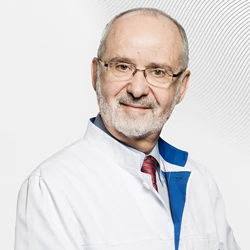
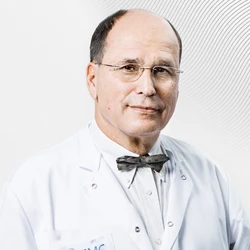
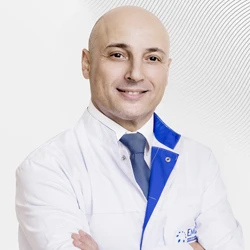

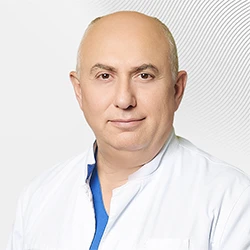
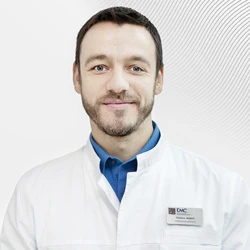
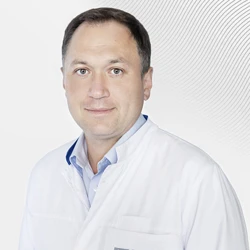
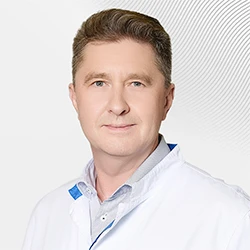

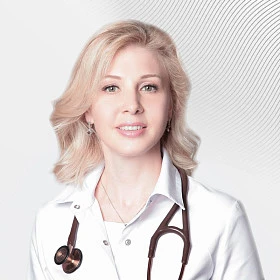
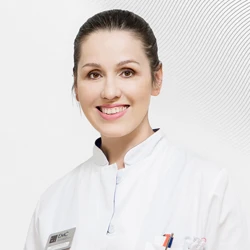
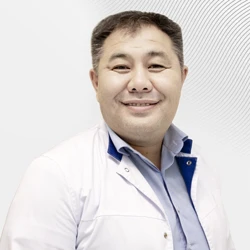
.webp)

.webp)
